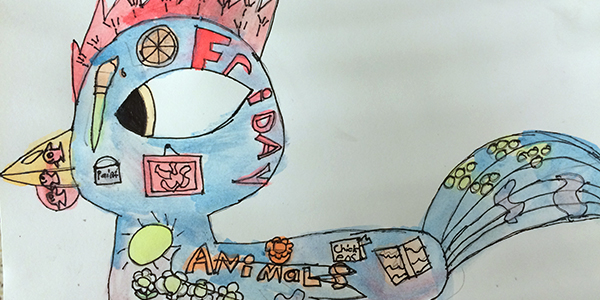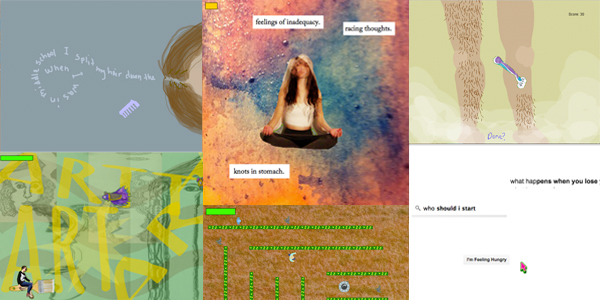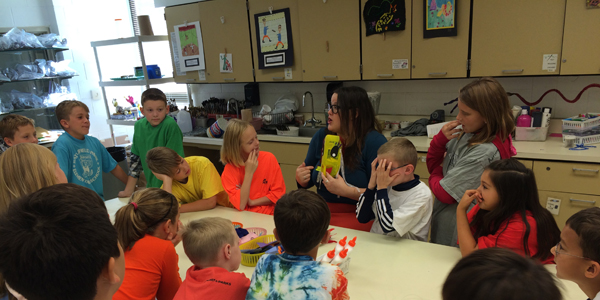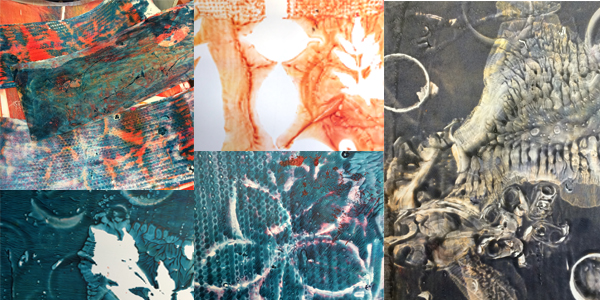Queering Video Games
Hacking Dominant Gaming Culture
Unit Overview
In this unit, learners will Identify and analyze the rules and expectations that govern their social, relational and personal lives. Learners will then create a videogame that hacks (breaks and remakes) traditional understandings of said rules.Big Idea: Hacking (Breaking and reMaking)
Key Concepts: Rules, Identity, Relationships, Vocabulary, Stories, and Visibility
Essential Questions:
- What rules govern our lives?
- How do rules (personal and societal) affect our identity?
- How are rules created between individuals?
- How does changing our vocabulary change rules?
- What are the rules governing queer stories and how they are told?
- How does breaking the rules relate to queer visibility?
Rationale: The most prominent characteristic of games is the series of rules that a player must contend with to reach a goal or win scenario. Queer youth have a similar experience everyday contending with the expectations of family, community and friends who subscribe to a dominant more heterogeneous way of life. The purpose of this unit is to introduce learners to the idea of HACKING the queer youth experience through the medium of video games. With inspiration from Jose Esteban Munoz’ idea of disidentification we will look at how we can fashion our own understanding of what it means to be young, to be queer, to be human by working on, with and against dominant cultural influences within video game culture. Learners will be encouraged through this program to think critically about what is considered “normal” within dominant culture discourses and to evolve their own notions of “queerness” and queer identity. The act of playing video games is a common cultural experience for most youth, but the act of making a game may not be. Making video games has never been more accessible with programs like Game Maker, Scratch, and Twine that eliminate the need for coding expertise and which can be downloaded for free or low price. Learners will be considering games created by independent artists or small teams whose themes fall outside of those consistently presented by the dominant gaming culture. Games by artists such as Anna Anathropy (Dys4ia, Calamity Anne), Mattie Brice (Mainichi) and Merrit Kopas (Lim) will be explored and the importance of inclusive, diverse voices in video game culture emphasized.
Target Student Group: Middle-High School Learners, Urban, Community program for queer youths.
Potential Time frames: 3 Sessions (Weekend Days/evenings 4-6 hours) 4 Sessions (Weekend days 3-5 hours) 5-6 Sessions ( Weekday evening sessions 2-3 hours)
The proposed workshops work best as a multiple day sessions. This give learners room to process what is being learned and not get overwhelmed by the software.
Specific Unit Objectives:
Objective: Learners will define the rules and expectations that govern their world and relate them to those found within games. Learners will compile a list of those regulations and expectation found within their social, institutional, familial, and larger cultural worlds and ascertain whether there are larger purposes of those rules
Objective: Learners will identify outside and inside influences on their personal identity and assess how social regulations and expectation affect the images of queer identity. Learners will create an alter ego avatar that represents an alternative version or more genuine version of their identity.
Objective: Learners will breakdown gaming verbs (M.A.R.C→ Move, Avoid, Release, Contact) in relationship to their own experiences and provide new definitions. Learners will apply reconfigured gaming verbs to their avatars, adding motivation and character to their games
Objective: Learners will give examples of boundaries that exist within multiple kinds of relationships (friends, family, lovers, authority figures, enemies) and determine why and where these understanding come from as well as their purpose. Learners will Introduce second character (with a verb) that player doesn’t control and define their relationship to their avatar. Learners will be asked to evaluate how this changes their game, the motivations of both characters and possible outcomes for the game.
Objective: Learners will identify kinds of queer stories (and stories about queer people) told in popular gaming (tv/movie/visual/etc) culture. They will compare those stories to those told by game designers they’ve looked at through the course of the workshop and to their own. Learners will begin to create a narrative around their game and design level(s) based on their story.
Objective: Learners will examine WHO tells (writes, creates) queer stories in popular gaming (TV/Movie/visual/etc) culture and reiterate why sharing their queer experiences is important. Learners will bring their video game designs to a conclusion, critique and assess each other’s work, and discuss ways of distributing their games.
Materials-
Learners will need- Laptops with Gamer Maker Lite (free) downloaded
Instructor will need- Projector & Screen, Laptop (brought by instructor)
Other supplies: Card Games (Flux, Two Ducks, Coup- all provided by instructor), Mixed Media Materials for character making (Paper, clay, Magazines) Gamer Maker Cards (either printed or PDF) paper, pencils, Large Tyvek





